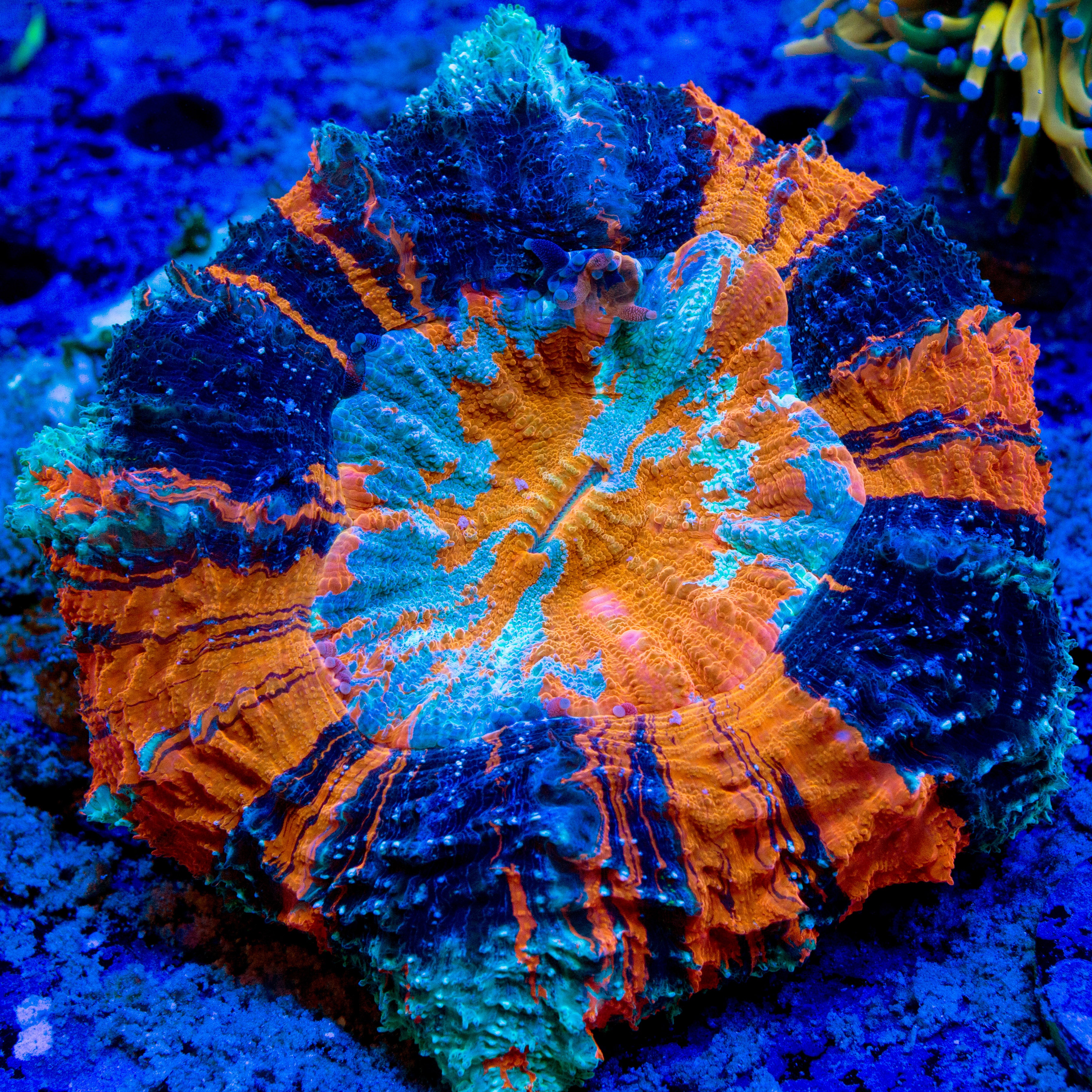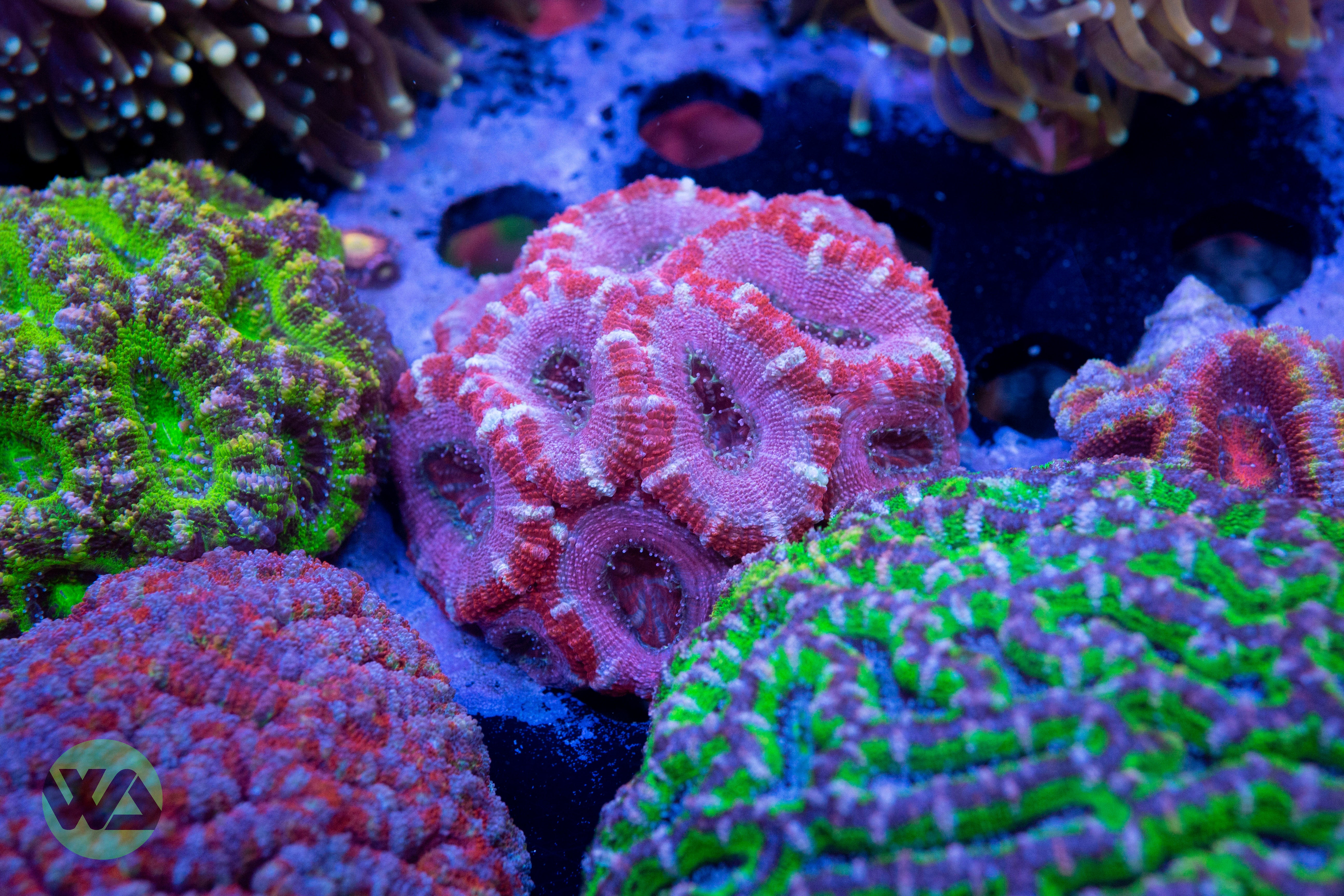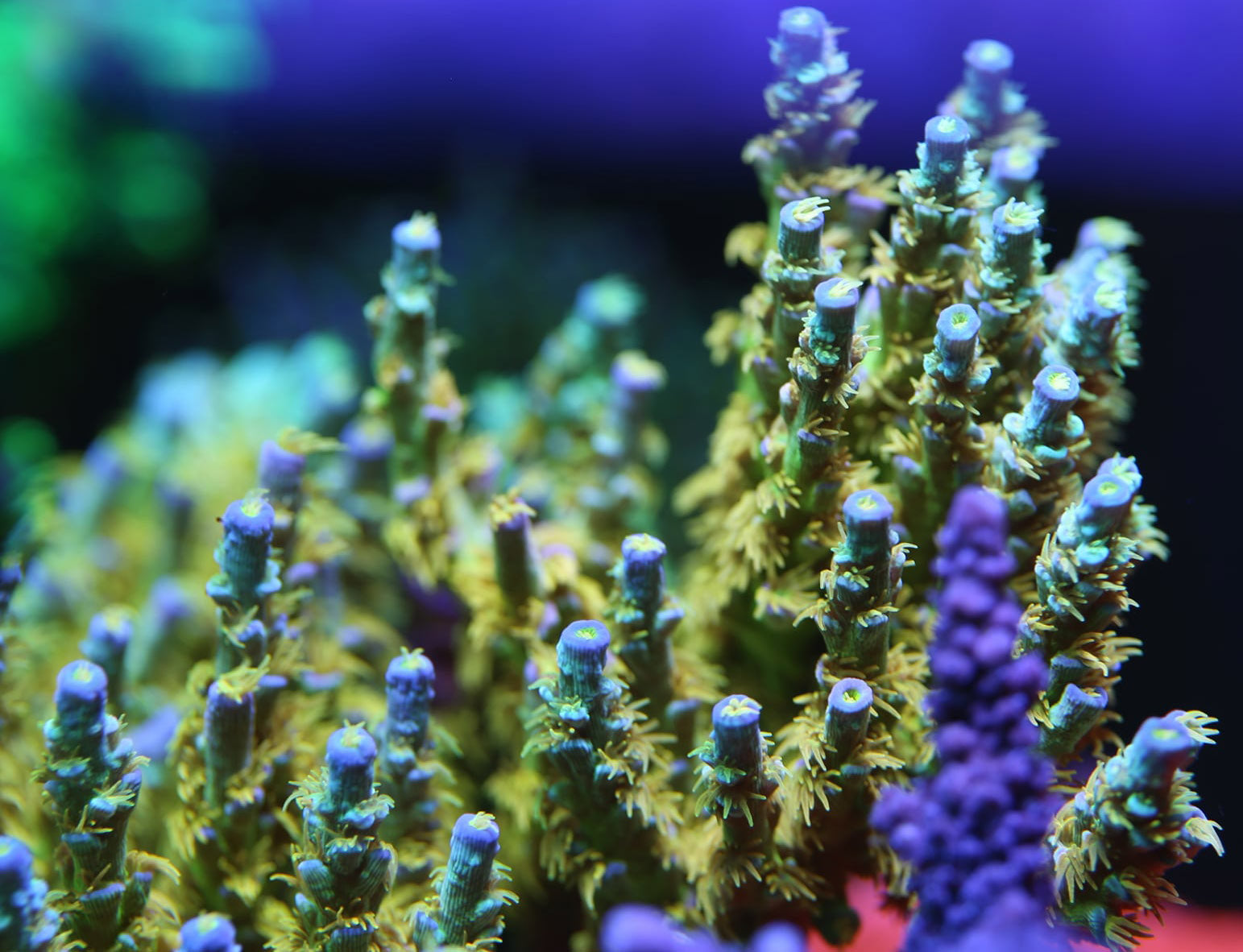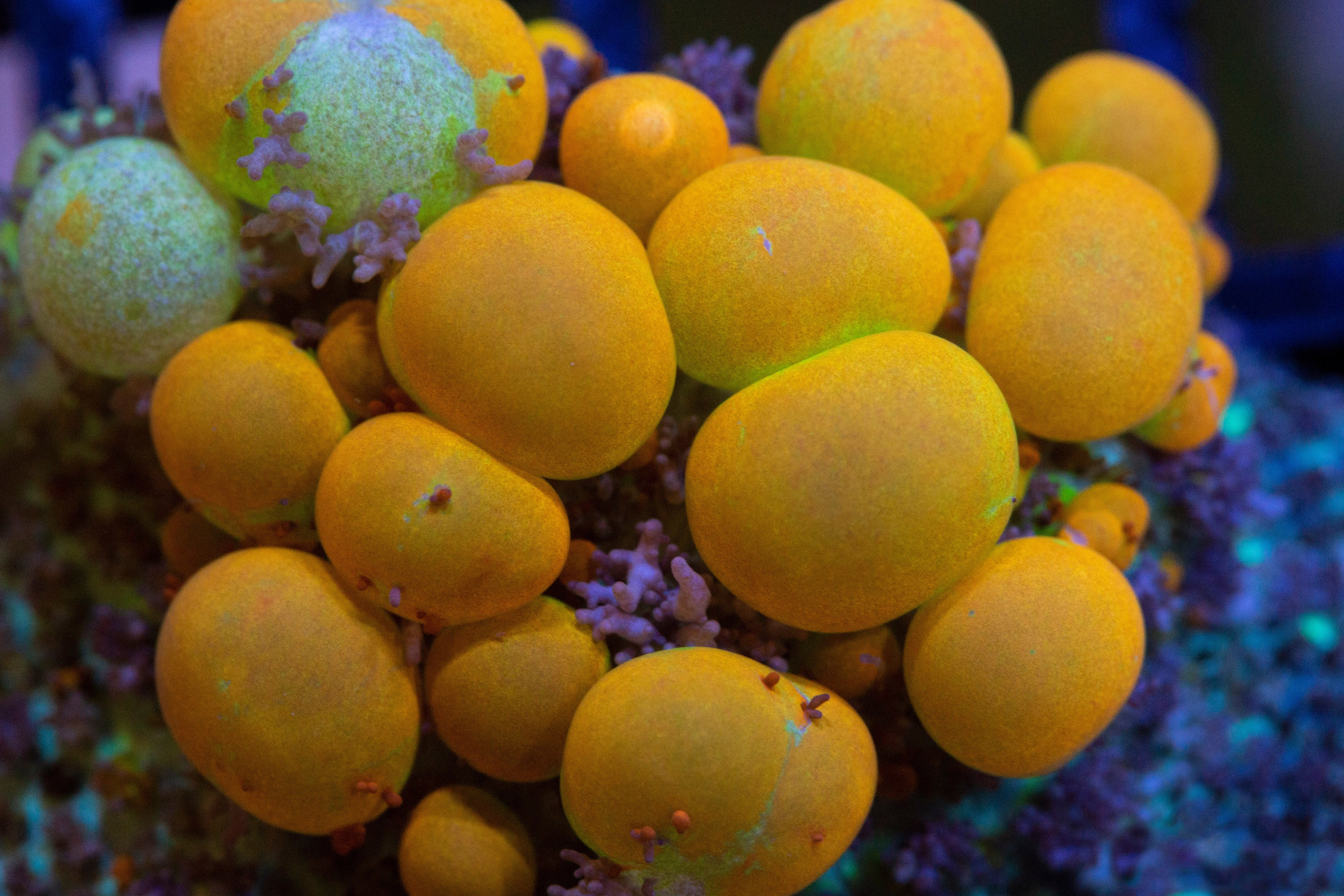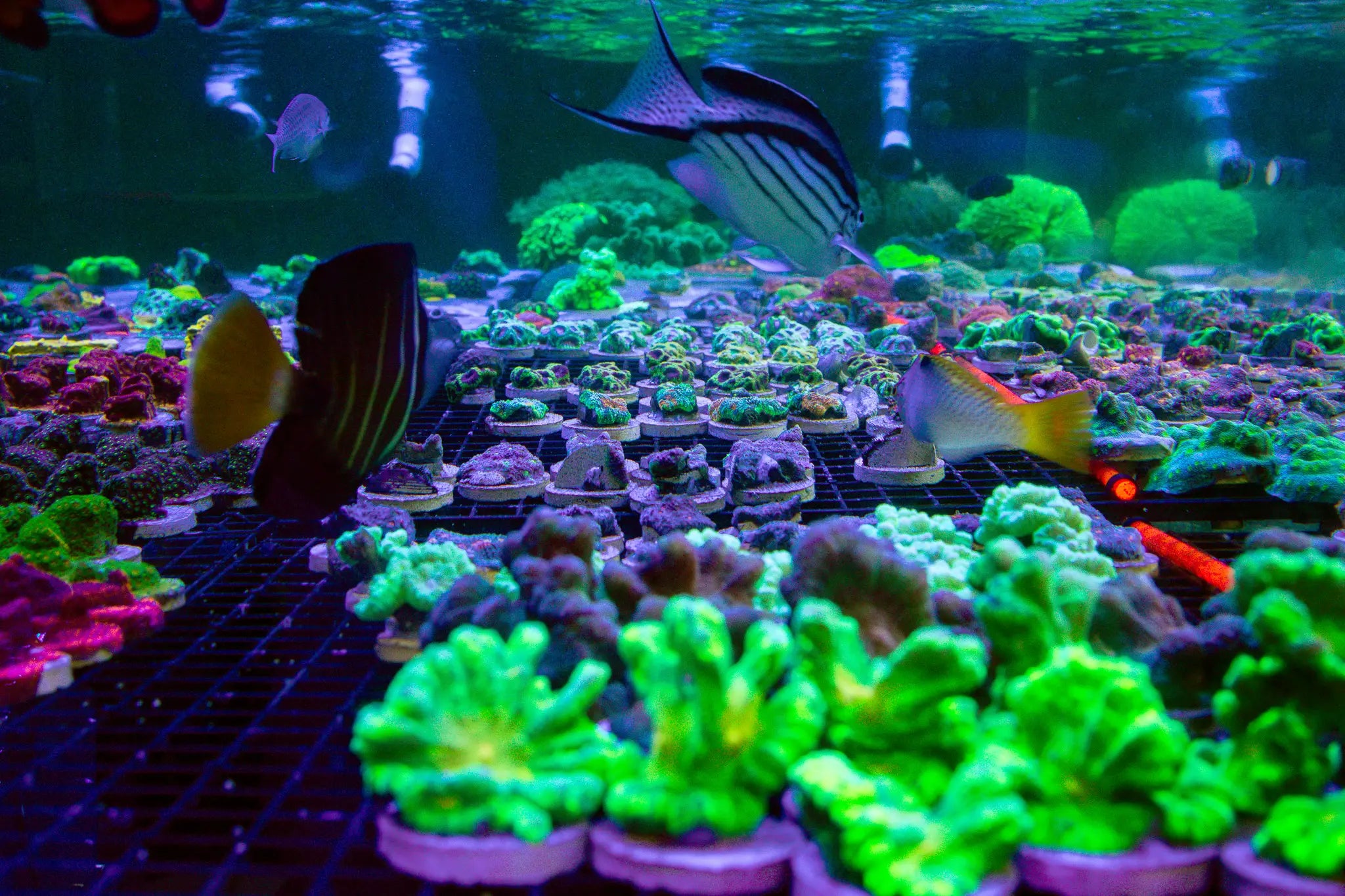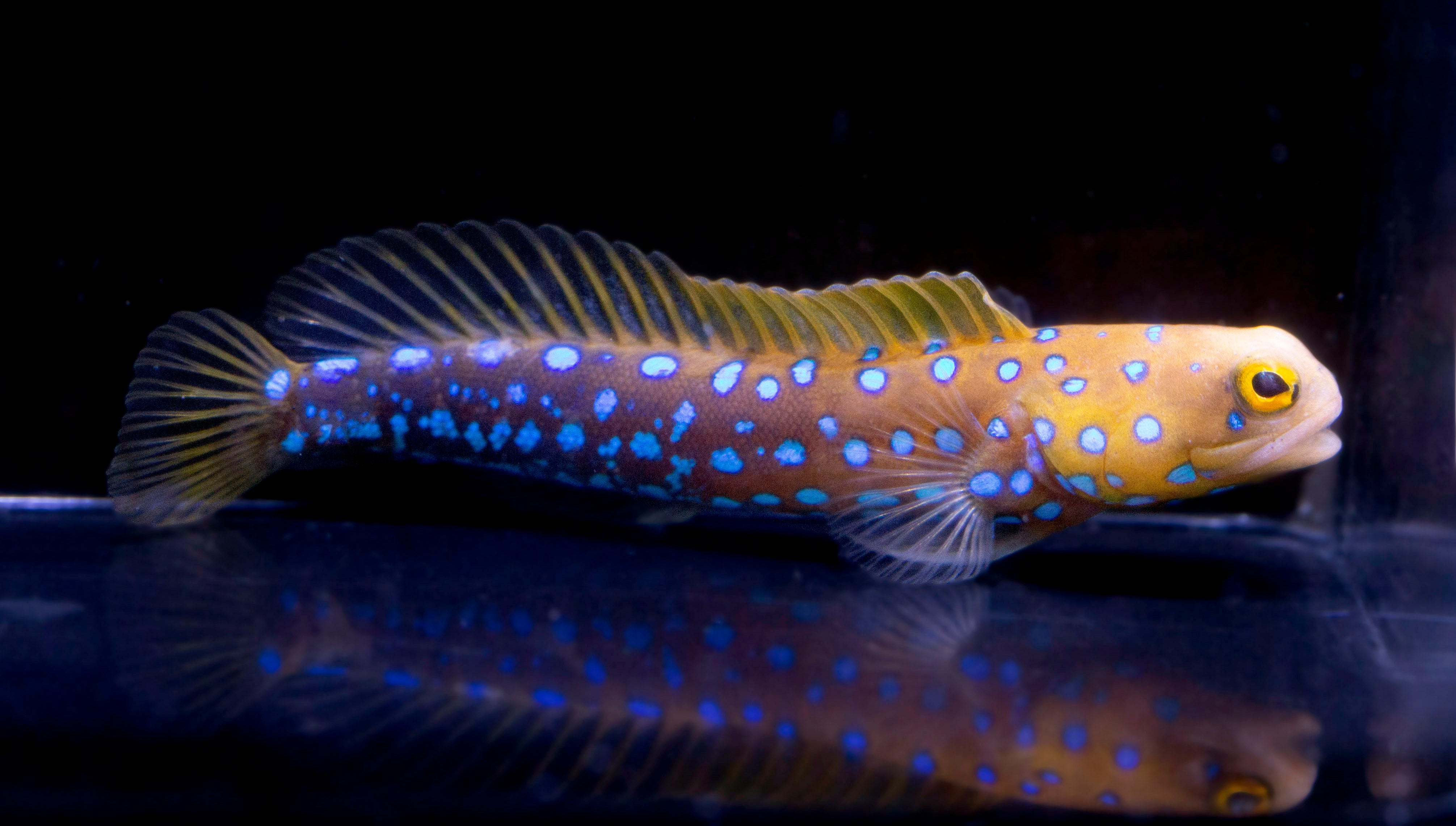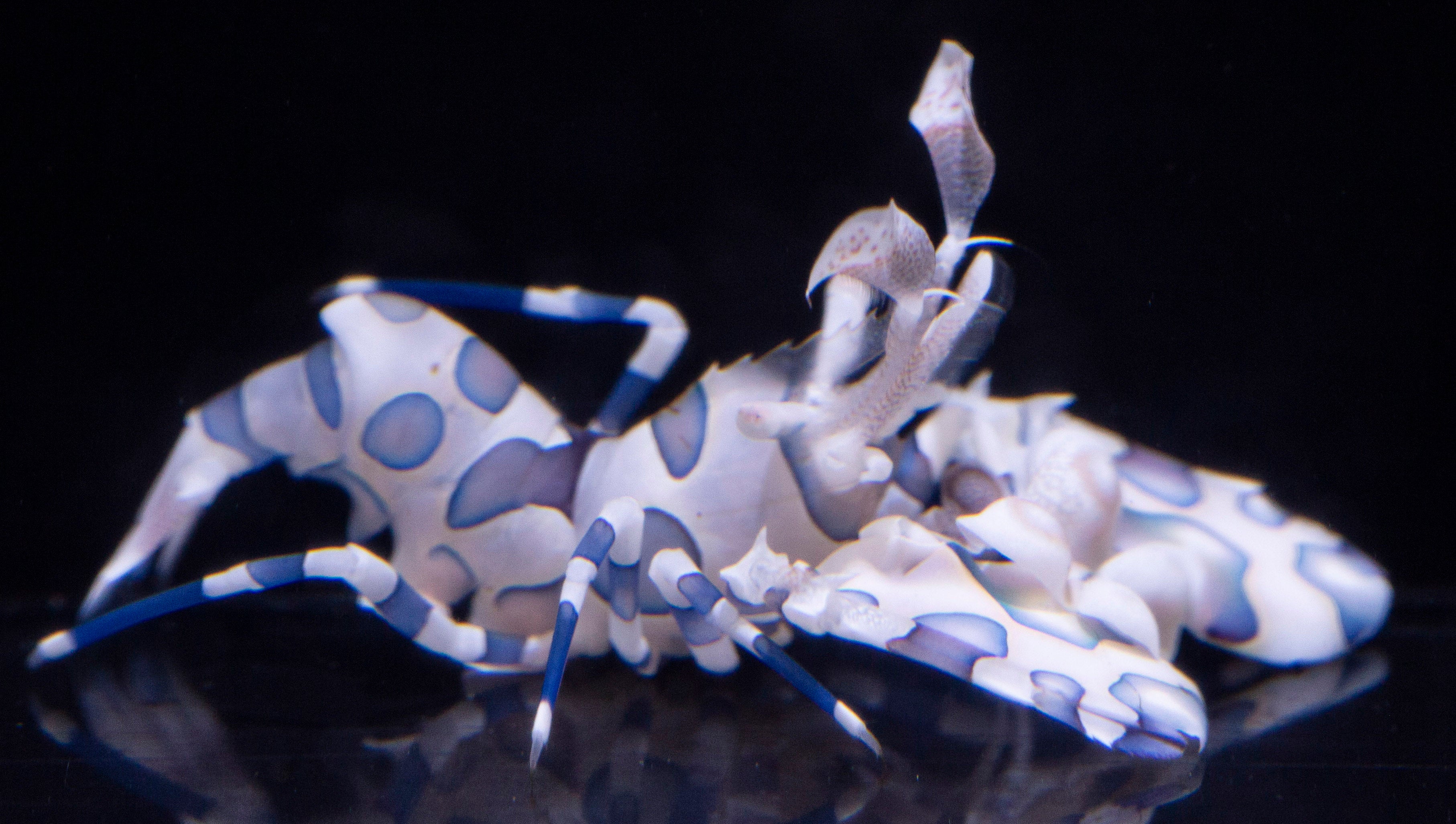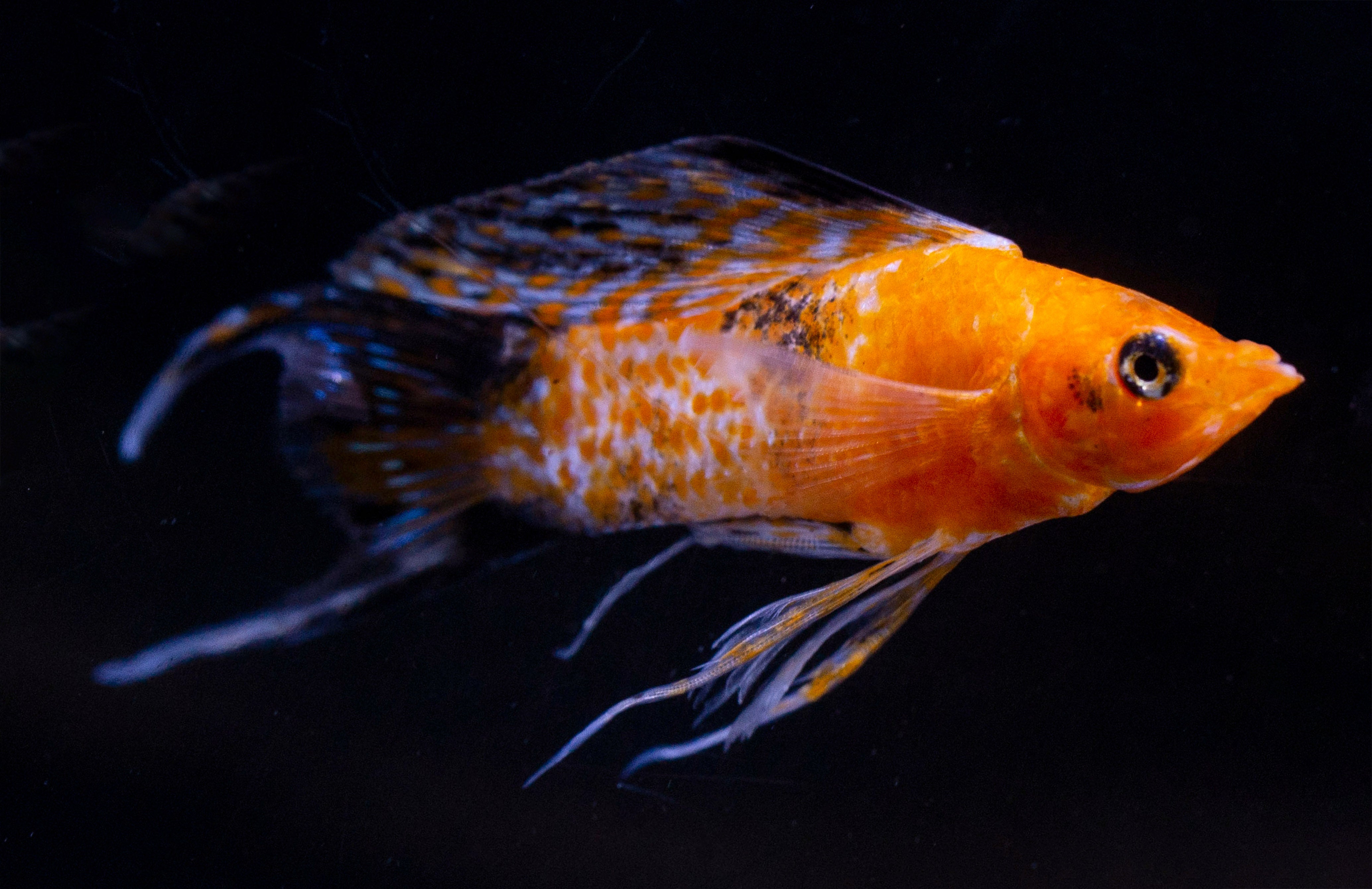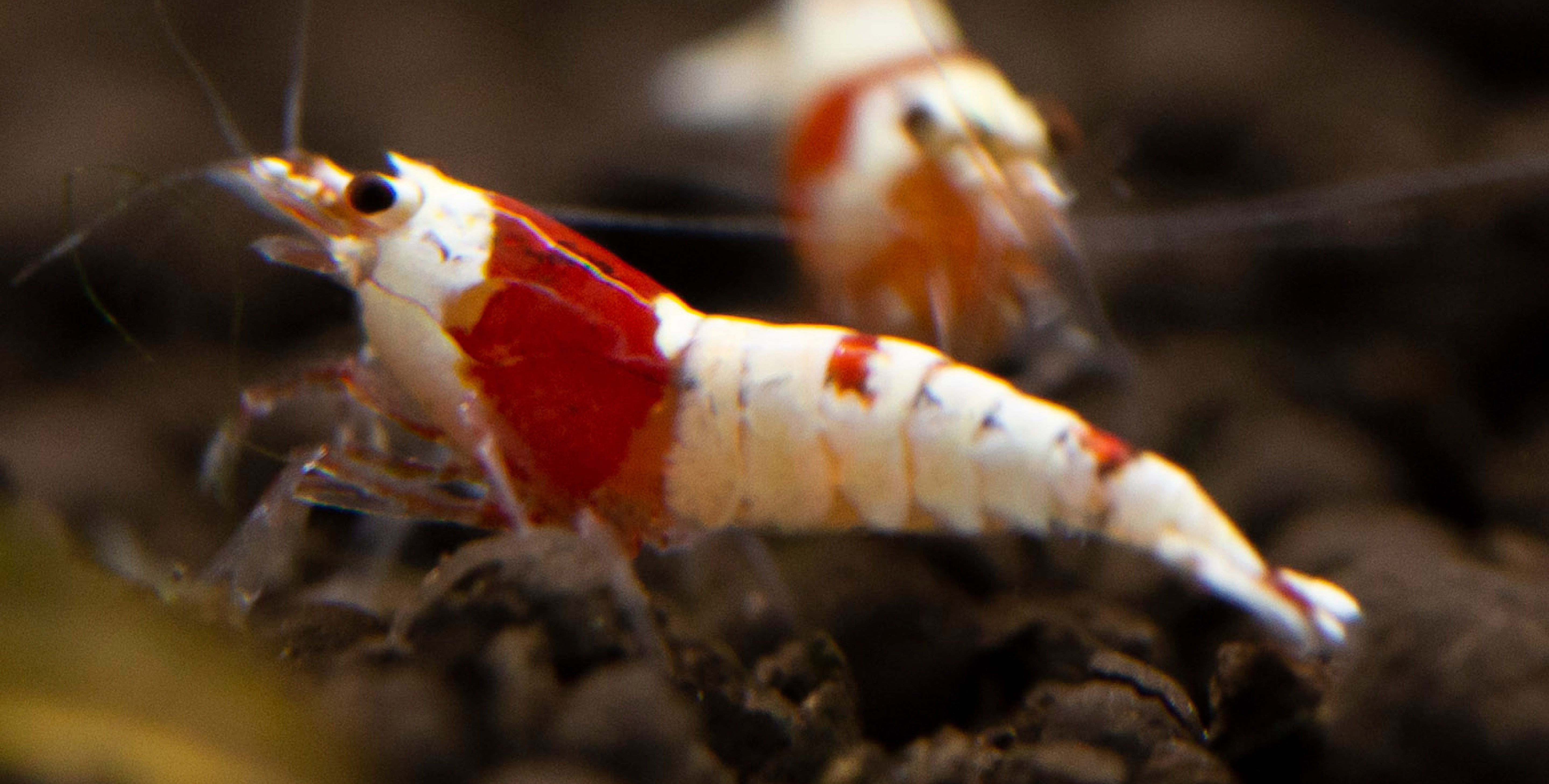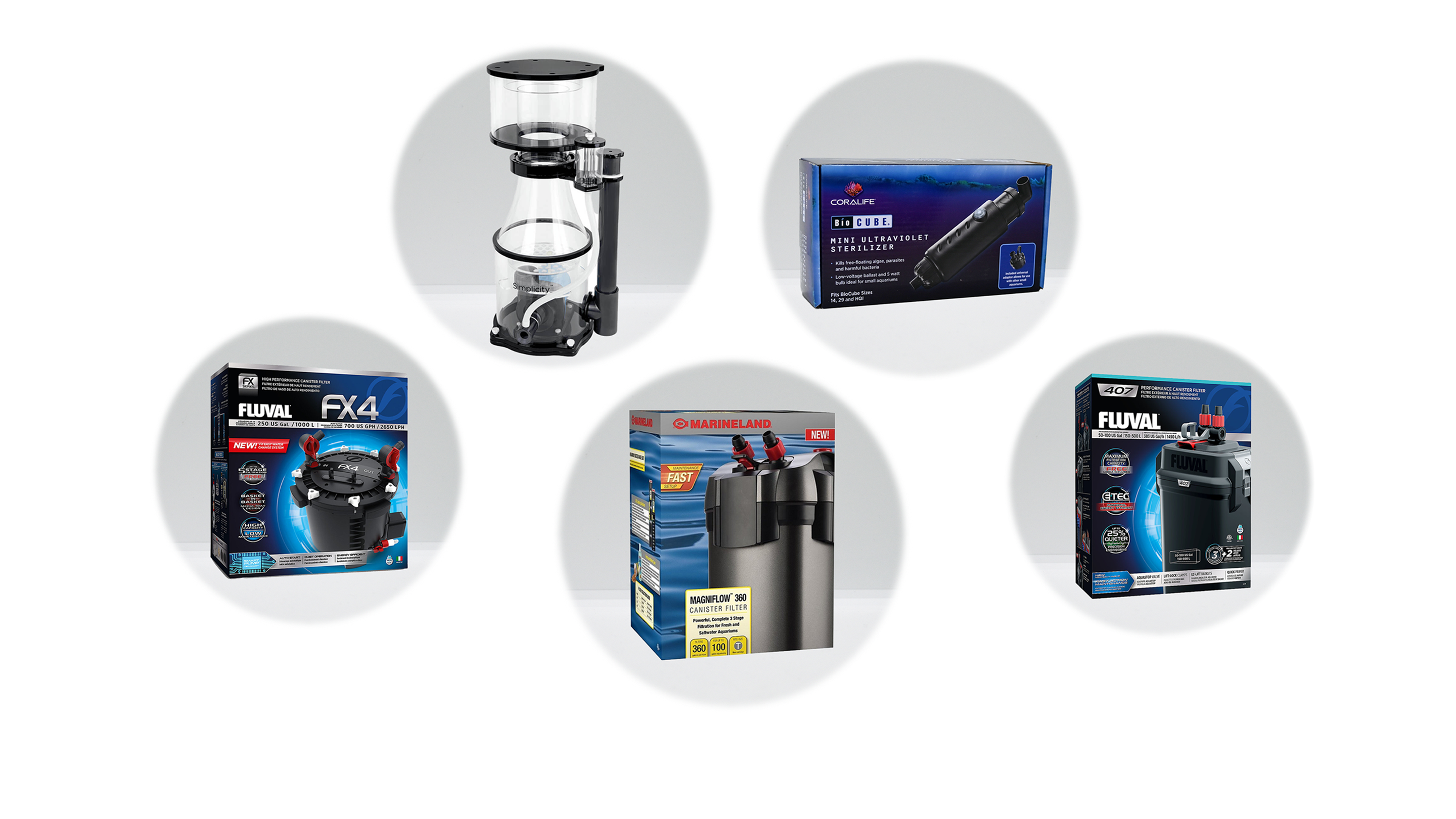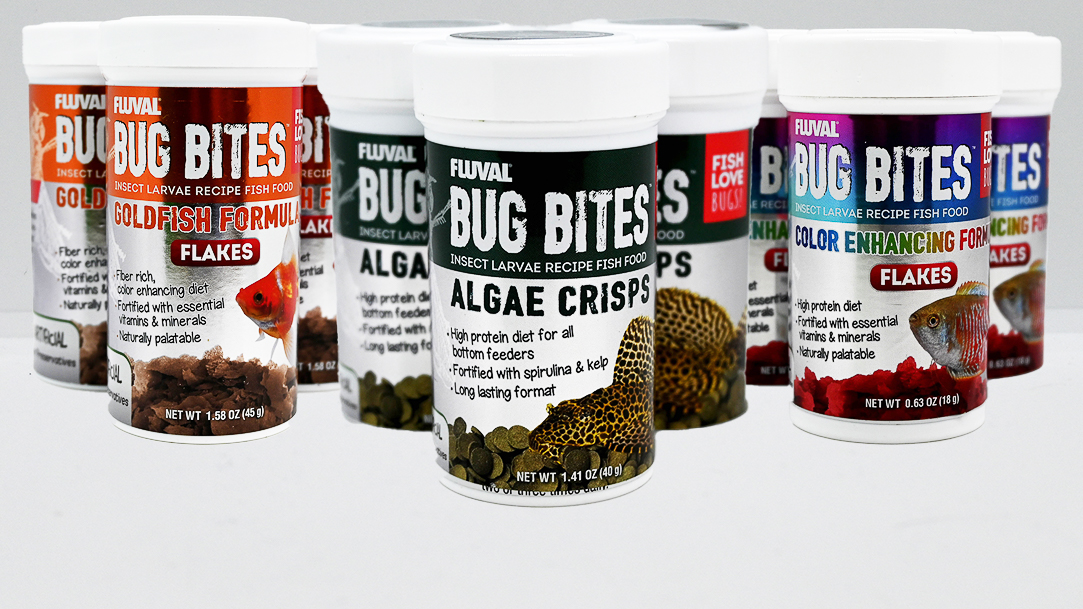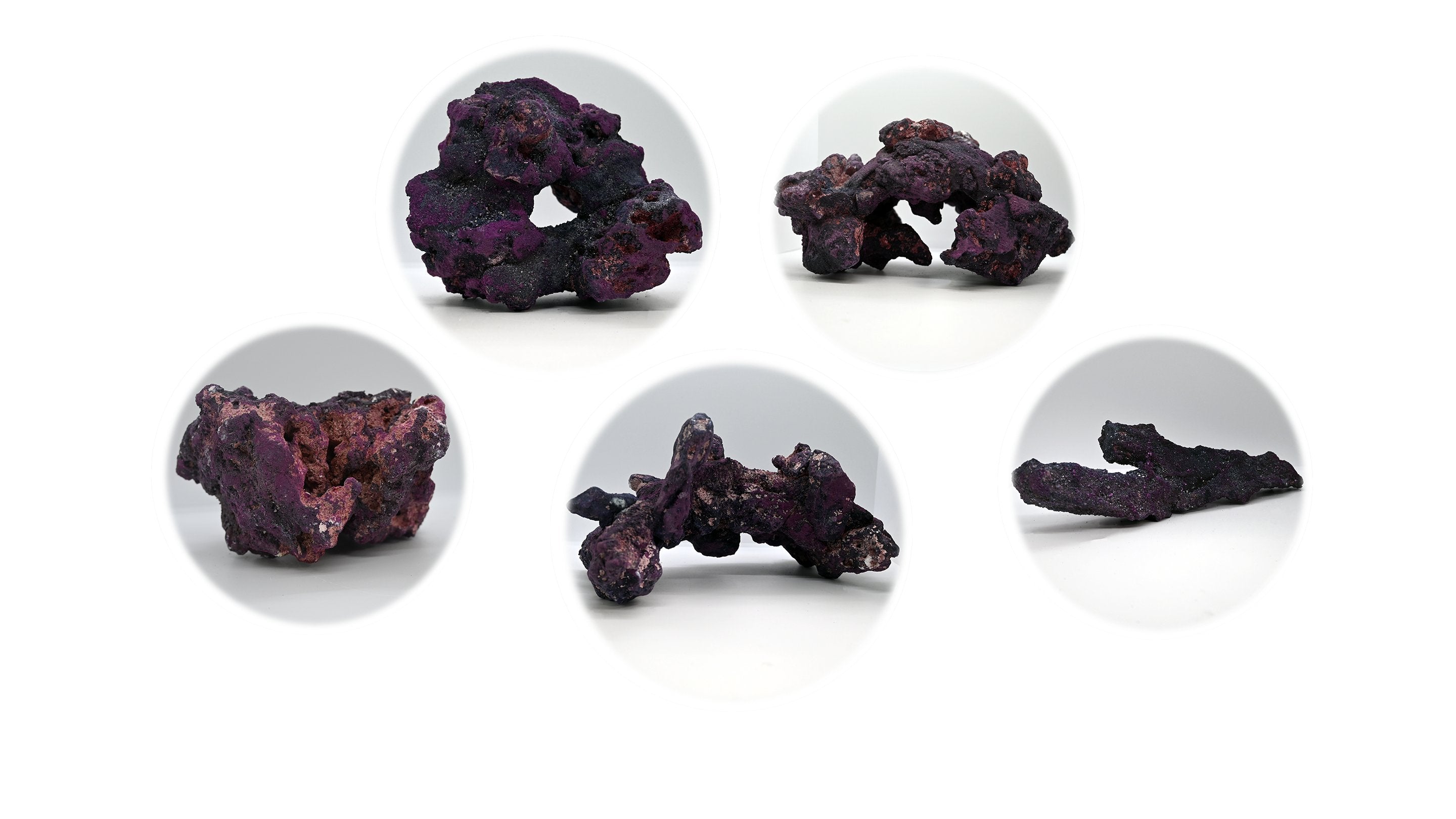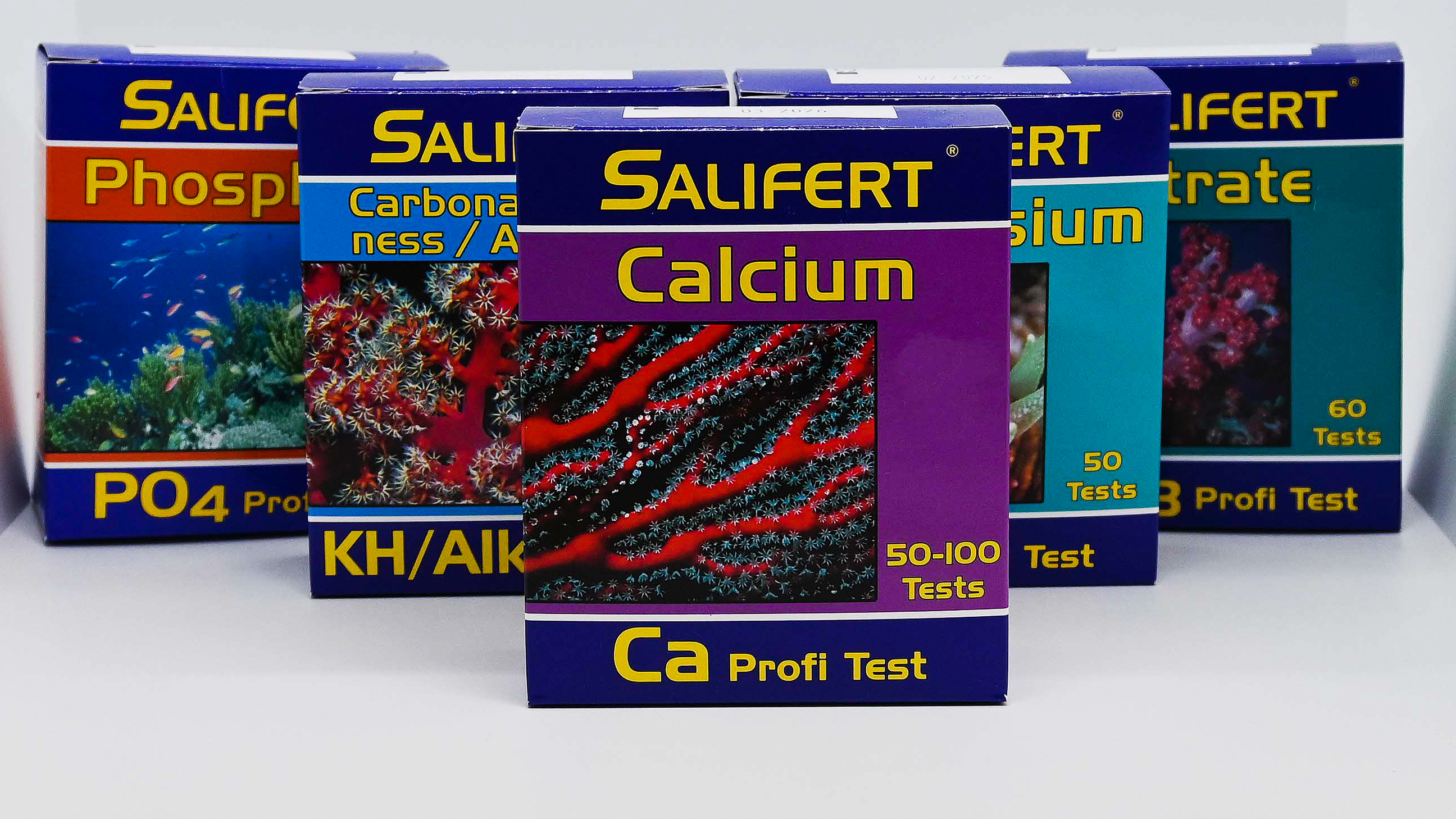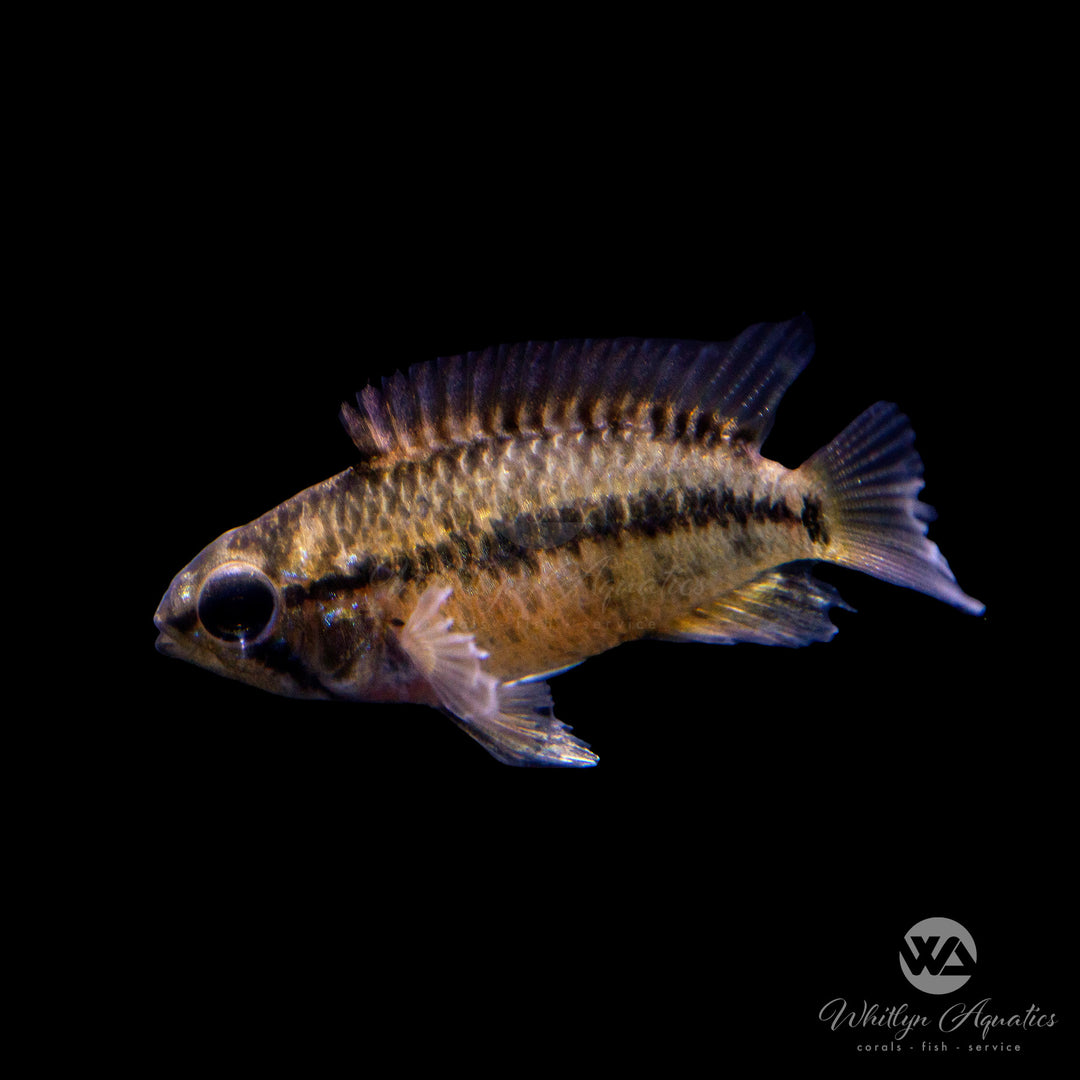
Macmaster's "Red Shoulder" Apisto - Apistogramma macmasteri
- In stock, ready to ship
- Backordered, shipping soon
Macmaster’s “Red Shoulder” Apisto (Apistogramma macmasteri)
Macmaster’s “Red Shoulder” Apisto (Apistogramma macmasteri) is a striking dwarf cichlid known for its vibrant red and orange coloration, particularly on the shoulders and dorsal fin. This species is a favorite among aquarists for its beautiful appearance, relatively peaceful nature, and interesting behaviors, making it a standout in well-planted community aquariums.
Description:
• Common Name: Macmaster’s “Red Shoulder” Apisto
• Scientific Name: Apistogramma macmasteri
• Family: Cichlidae
• Size: Up to 3 inches (7.5 cm)
• Color: Golden-yellow body with a vivid red-orange patch on the shoulders and upper body, along with blue iridescent scales and red markings on the fins
Native Region:
Apistogramma macmasteri is native to the slow-moving rivers and streams of the Orinoco River basin in Colombia. These waters are typically warm, soft, and slightly acidic, with abundant vegetation and leaf litter.
Aquarium Setup:
• Tank Size: Minimum of 20 gallons (75 liters) for a pair or small group
• Water Parameters:
• Temperature: 75-82°F (24-28°C)
• pH: 5.5-7.0
• Hardness: Soft to moderately soft water (2-10 dGH)
• Substrate: Soft sand or fine gravel; well-planted with plenty of hiding spots using driftwood, rocks, and caves
• Diet: Omnivorous; feed a varied diet of high-quality flakes, pellets, and live or frozen foods such as brine shrimp, bloodworms, and daphnia
Care Level:
• Difficulty: Moderate
• Temperament: Peaceful and relatively shy; males can be territorial, especially during breeding
• Lifespan: 3-5 years
• Breeding: Egg-layer; prefers to spawn in caves or secluded areas, with females guarding the eggs and fry
Additional Tips:
• Tank Mates: Suitable for community tanks with other peaceful species such as small tetras, rasboras, and Corydoras catfish. Avoid aggressive or much larger fish.
• Territory: Males can be territorial, so provide plenty of hiding spots and visual barriers to reduce aggression, especially in smaller tanks.
• Water Quality: Sensitive to water conditions, so maintain regular water changes and stable parameters to ensure their health.


